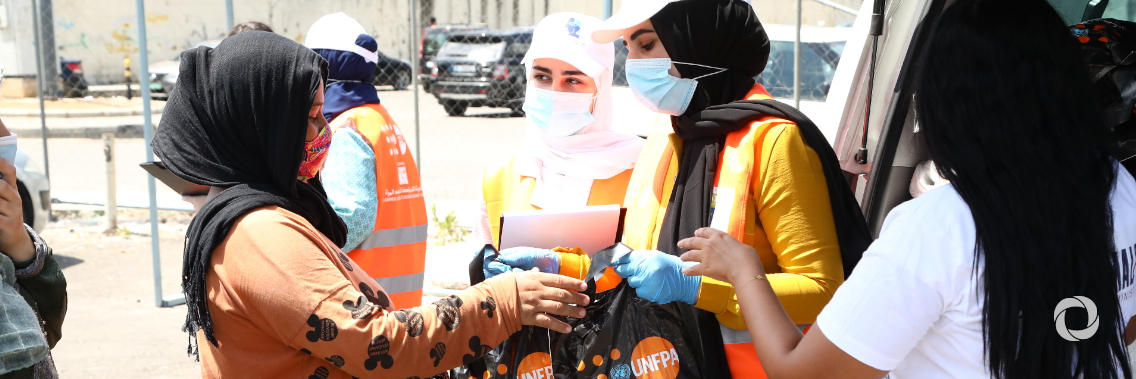A month after the Beirut Port explosion, life remains uncertain for thousands of women and girls. Among the displaced are an estimated 84,000 women and girls of reproductive age.
UNFPA is working with 12 partners on the ground to distribute dignity kits, which contain sanitary pads, soap, toothbrushes, toothpaste, and towels. These items are helping women and girls maintain their personal hygiene even amid the destruction and displacement.
The blast and its aftermath come atop the COVID-19 pandemic and an economic crisis. Job losses have curtailed family spending, even as disease prevention is becoming more urgent than ever. Too often, the needs of women and girls are the first to go unmet.
The distribution of dignity kits is also an opportunity to address yet another crisis: gender-based violence.
Gender-based violence is known to increase in humanitarian settings and in times of economic stress. Amid the pandemic, many countries are reporting increased violence against women and rising demands for support services.
“It is very important to remember that dignity kits are helpful to women and girls, not only for the menstrual hygiene products, soaps, and other items, but also as a way to reach women and girls with key messages about sexual and reproductive health and rights, gender-based violence, the prevention of sexual exploitation, and abuse services and information,” said Felicia Jones, UNFPA’s humanitarian coordinator.
It is estimated that around 12,000 disabled persons have been affected by the blast.
Original source: UNFPA

